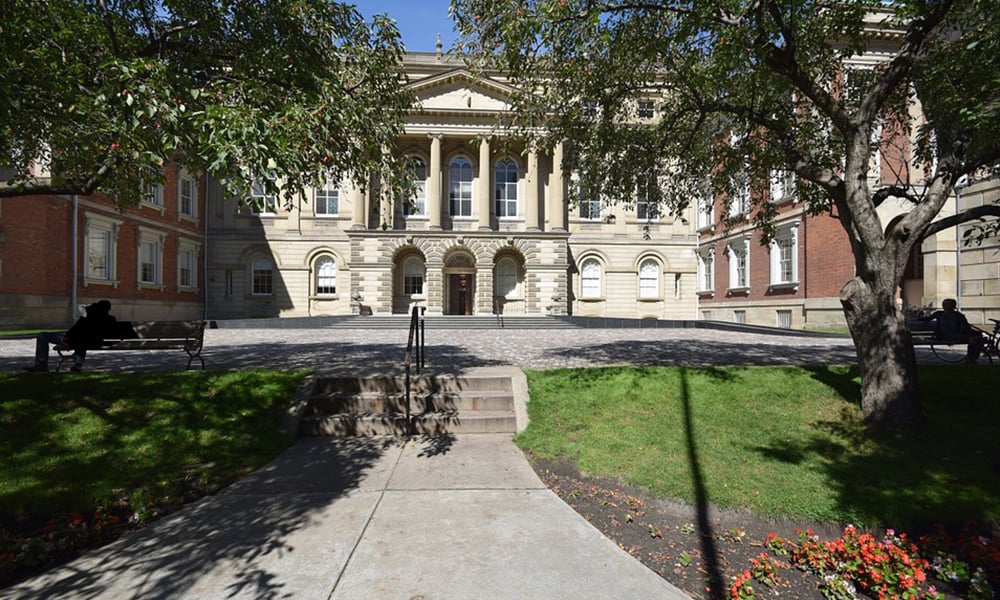The new treasurer will enter office at a time when many lawyers face economic stress stemming from COVID-19

The Law Society of Ontario board met remotely on May 28, dealing with a slew of issues ranging from the law society’s budget to a potential rise in errors insurance claims at LawPRO.
The organization is confronting the uncertainty of new leadership, leading up to a Treasurer election next month. The election is set to use a new electronic system which raised questions during the meeting about privacy and abstaining from voting (benchers were assured the contents of their ballots would remain secret).
The new treasurer will enter office at a time when many lawyers face economic uncertainty stemming from the COVID-19 lockdown. Daniel Pinnington, the CEO of LawPRO, noted that historically claimants have pursued lawyer error claims more aggressively during downturns.
The professional insurer reported a seven per cent jump in claims last year as new lawyers continue to enter the field. LawPRO’s report to Convocation revealed that an increase in litigation and real estate-related claims accounted for almost all of the total increase in new claims. Last year, LawPRO also saw more time management-related errors, following the introduction of Rule 48’s “temporary increase in administrative dismissals.”
As premiums held steady, LawPRO saw profits decline by $12 million in 2019, but had a comprehensive income of $17.8 million compared to $200,000 loss during the prior year.
The insurer said, 86 per cent of claims were closed without any indemnity payment.
“LAWPRO navigates a careful balancing act: keeping revenues high enough to be commercially viable and satisfy regulators that the company is financially healthy, while handling claims and carefully controlling premiums to maintain affordability and properly reflect the cost of risk,” wrote LawPRO chair Andrew Spurgeon in the report.
The law society itself is also readying itself for economic changes. Benchers agreed earlier in the month to suspend their own remuneration from April 9, 2020 to the either June 30 or when in-person bencher meetings resume, whichever comes first. After outcry on social media, the LSO also cut back fees for newly called lawyers who have forgone in-person ceremonies, with Treasurer Malcolm Mercer calling on lawyers to support new entrants into the profession.
Going into 2020, prior to the pandemic’s onset, the LSO was already planning to cut jobs. A report to Convocation by treasurer candidate Teresa Donnelly states the LSO is in “a financially sound position.”
Other reports offered to benchers — but not discussed extensively in the public meeting — included updates on the Law Society Tribunal, the licensure process and activity at the Federation of Law Societies of Canada.
The tribunal committee report revealed that the LSO revoked the licenses of 20 lawyers and three paralegals last year, while eight lawyers and one paralegal were “granted permission to surrender their licences.”
The other reports included details on the changing education trends of the profession: Ontario has seen a 60 percent increase in the number of international lawyer licensing applicants compared to five years ago. At the national level, the National Committee on Accreditation, which assesses the credentials of internationally trained lawyers and graduates, saw a 38 per cent increase in applications for assessment in the first seven months of the 2019 to 2020 term, compared to the 2018 to 2019 period.
At the close of the public portion of the meeting, the benchers continued to work as a committee of the whole, despite objections and calls for more discussion by bencher Julian Falconer.
As the COVID-19 pandemic has stymied in-person gatherings, the LSO’s board of benchers has only held one meeting so far this year that has been open for public attendance, in February. Two videos were posted after the fact of April and May meetings, which were 21 minutes and four minutes, respectively. The meeting on May 28 allowed outside participants by invitation. In the past few years, there have been four to eight meeting agendas posted publicly for the first six months of the year.
Falconer said benchers should discuss a more transparent way to deliberate some in camera deliberations. However, Mercer said the agenda’s move to private discussion fell within the scope of the organization’s bylaws.










